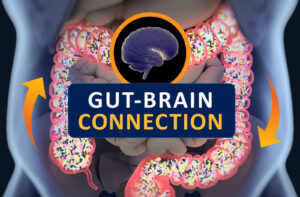Do Probiotics Support Mental Health?
It is important for the microbiota to be kept in balance, and modifying the diet by incorporating prebiotic and probiotics in fulvic acid is one way this may be achieved. There is evidence to suggest that probiotics can have beneficial effects on mood as well as psychological distress.
Proposed ways that probiotics can improve mental health include:
- Increasing the synthesis and reducing the metabolism of serotonin
- Lactobacillus and Bifidobacterium are two of the most studied strains of probiotics, although much of the research has been conducted through animal studies.
The effects of probiotics on the symptoms of depression and anxiety are more limited. A study on the treatment of a mixed probiotic which contained L.helveticus and Bifidobacterium in healthy humans found those taking the probiotic had significantly less psychological distress than those who took a placebo. Probiotics have also been successful when given as a milk-containing drink at improving mood and cognition and in improving the anxiety of subjects with chronic fatigue syndrome.
One study gave 70 participants either a probiotic capsule with a normal placebo yogurt or a probiotic yogurt with a placebo capsule, or both a placebo yogurt and capsule, every day for six weeks. Participants were then given a questionnaire to assess their anxiety, depression, social dysfunction, and insomnia. There was a significant improvement in the depression anxiety stress scale scores among those who took the probiotic yogurt and the probiotic capsule. This study highlights the potential of probiotics to improve mental health; however, the results are only applicable to the specific study population and can’t be generalized to the whole population.
In addition, the use of probiotics in this study only improved mental health scores while taking probiotics. It would be useful to know how long the mental health scores improved after stopping probiotics.




